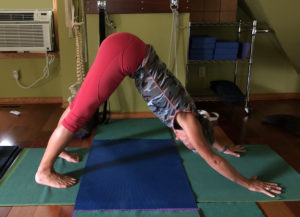When Canadians celebrate the birth of our nation, which is considered part of the free world, in truth, we are celebrating our political and spiritual freedom. Although we might take these freedoms for granted, freedom from oppression in our working lives continues to require our attention. Consider your current employer, would you say your workplace is designed to provide a high quality of working life to you and its other members?
Research by Fred and Merrelyn Emery (1974, 1978) identified a set of minimal requirements humans value in their work activity regardless of gender, nationality, race, culture and style of work. These six criteria are:
1. Freedom to participate in decisions directly affecting their work activity.
2. A chance to learn on the job, and go on learning.
3. Optimal variety, not too much, not too little.
4. Mutual support and respect of their colleagues.
5. Socially meaningful work.
6. Work leading to some desirable future.
Freedom is a choice. Do you find yourself compromising your freedom, that is, the quality of your working life, to receive a better pay cheque, to keep your job or to avoid confronting your boss? Are you choosing fear rather than freedom? And is this who you want to be in the world?
With freedom of choice comes the power to decide what best suits us. Fortunately, every person, thing and situation in our lives presents us with the opportunity to discover what we want and who we want to be. From positive people and experiences, we learn what we want and can then practice the thoughts and behaviours that attract more of it into our lives. For example, one of the attendees in my Relax & Recharge: Right NOW meditation circle exudes loving kindness. The remainder of the circle is privileged to witness and receive this love, as well as practice reacting with love no matter what arises for them. Believe it or not, some people act negatively when confronted with loving kindness.
Conversely, and of no less importance, from negative people and experiences, we learn what we do not want and who we do not want to be. Often these less pleasant people or situations trigger our own negative patterns of thinking and behaving, and we find ourselves reacting with fear or anger and without compassion or loving kindness. Just such a situation has arisen for me. In a piece of brilliant journalism, Kevin Rollason’s Winnipeg Free Press article (June 29) titled, Kitty bylaw is back, lays out the facts of an emotionally-charged situation. The City is considering licensing cats as a means to control the feral cat population in Winnipeg even though at least three animal groups initially disapproved — The Winnipeg Humane Society, Winnipeg Pet Rescue Shelter and D’Arcy’s ARC. What has changed? These three groups have changed their minds and now given their blessing to the licensing program. Why? Because 50% of the revenue gained from cat licensing is being promised to the WHS for its spay and neuter programs.
There are just so many things wrong with this picture. First, am I the only one that thinks this smacks of a conflict of interest? In some circles, giving money to a group who then changes their mind would be considered a bribe. Second, no data is provided to suggest this initiative will actually have an impact. In fact, Carla Martinelli-Irvine, WPRS Executive Director stated, “It won’t solve the problem (of cat overpopulation), but it will make a dent.” In the arenas of organizational change or community development, we call this a puny intervention, and would never get funding for it. Third, the cats I personally rescued in my neighbourhood were owned by people who could not afford a cat license. Are we willing to establish a system that only allows those who can afford it to own a pet? We certainly don’t allow that system for parenting children. Finally, the only real data provided by Lynne Scott’s Craig Street Cats pilot project showed a successful reduction of 40 feral cats and their 35 kittens to 12 cats (after 6 years) and no kittens (for the past 3 years). Lynn believes a licensing program will increase rather than decrease the number of feral cats as she fears people will now release their currently unlicensed pets to avoid having to purchase a license. She claims, “The only method to reduce the number of cats on the street is to trap, neuter and return them to the exact same area.” If you agree with Lynne and like her results, you may want to contact the City’s Civic Protection and Community Services Committee before Thursday (July 04), which is when the bylaw will be debated.
In his article, Rollason laid out the situation’s circumstances without anger or disrespect. He left the choice of reaction up to the reader. In doing so, he role modeled quality journalism and mentored me toward a considerate and more loving response. Freedom is a choice, and it requires us to be responsible for our thoughts, words and deeds, just as Rollason was. If you are interested in methods to shift negative thinking and being, read my book, Creating Space: The Practice of Transformation, Inspiration, Vol. 1.
What one action can you take today to free yourself from negativity like anger or fear?
Source:
Emery, F. E. & Emery, M. 1974. Participative Design. Canberra, A.N.U., C.C.E.
Emery, F. E. & Emery, M. 1978. A Choice of Futures. Leiden, Martinus Nijhoff.





